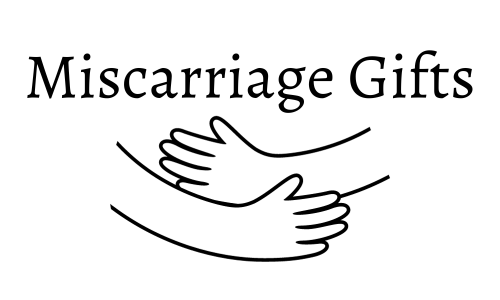In the challenging aftermath of a miscarriage, finding the right words to express sympathy can be daunting. While words may never fully heal the wounds of loss, they can offer comfort and support to grieving parents. Here, we'll explore practical advice on crafting sympathy messages for different contexts, understanding what to say, what not to say, and the importance of these gestures during such a sensitive time.
The Importance of Sending Sympathy Messages:
Expressing sympathy through a note or message is a crucial gesture when someone is dealing with the profound grief of miscarriage. In such a sensitive time, it might be challenging to find the right words to say, but the act of reaching out is incredibly meaningful. A sympathy note or message communicates to the bereaved parent that they are not alone in their pain, offering a sense of comfort and support. It provides a tangible reminder that others acknowledge their loss and are there for them during this difficult journey. The act of sending a sympathy message is a way to extend compassion, love, and understanding, which can be a source of solace for those navigating the complex emotions of miscarriage.
Practical Advice on Crafting Sympathy Messages:
Sympathy Text Messages:
What to Say: "I'm holding you close in my thoughts and heart during this difficult time. If you need someone to talk to or simply be there for you, I'm here."
Sympathy Email:
What to Say: "I can't begin to understand your pain, but please know that I'm here for you. Take all the time you need to grieve, and reach out if you ever want to share your feelings."
Sympathy Phone Message or Voice Note:
What to Say: "I wish I had the right words to ease your pain. Your feelings are valid, and I'm here to lend an ear or shoulder whenever you're ready."
In-Person Sympathy:
How to Start the Conversation: Begin with a gentle acknowledgment of their loss, such as "I heard about your loss, and I'm truly sorry. I'm here to support you in any way you need."
When offering condolences, it's crucial to exercise sensitivity and empathy. Avoid clichés or minimizing phrases such as "everything happens for a reason" or "at least you can try again." These remarks, while well-intentioned, may inadvertently invalidate the grieving parent's pain. Steer clear of providing unsolicited advice or silver linings. Instead, focus on expressing your sympathy and offering a listening ear. Remember, acknowledging the depth of their loss and showing genuine compassion goes a long way in providing comfort during this difficult time.
In the delicate journey of miscarriage grief, sympathy messages play a vital role in offering solace and support. While there's no perfect formula for what to say, expressing genuine care, acknowledging the pain, and respecting the individual's feelings are key. Each person's grief is unique, and your words can be a comforting beacon in their time of darkness.
In moments where words may fall short, a thoughtful and meaningful miscarriage sympathy gift can step in. Sometimes, it's challenging to articulate the depth of our feelings, and a carefully chosen gift can express sentiments that words cannot capture. Whether it's a huggable plush heart to hold during difficult times or a print of an angel baby safe in heaven, these gifts become tangible symbols of love and support during a time of profound grief.

3 comments
The advice on what to say and what not to say is invaluable. Sometimes, well-meaning words can unintentionally cause more pain, so having guidance on how to offer genuine support is incredibly meaningful.
The words we say when someone is hurting leave a lasting effect on that person so we must choose our words very carefully. This post gives very useful suggestions in that regard.
You would think that this not need to be said but it must be said over and over again. So many times people have good intentions but say something that can be triggering and hurtful. Thank you for this post!